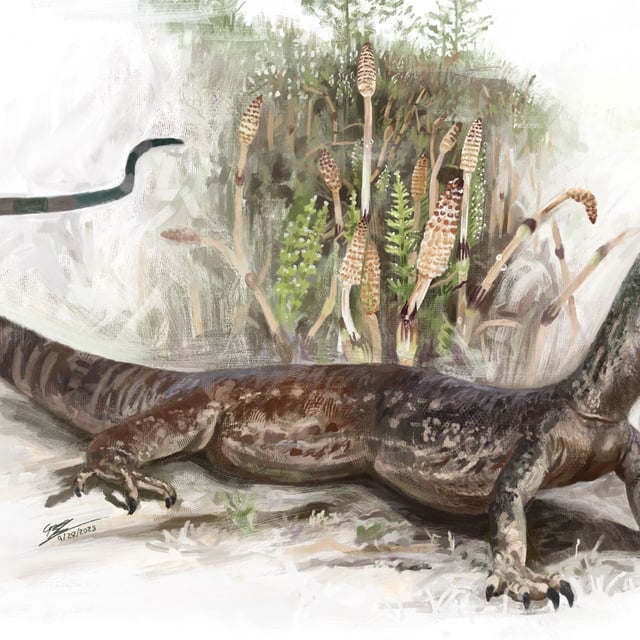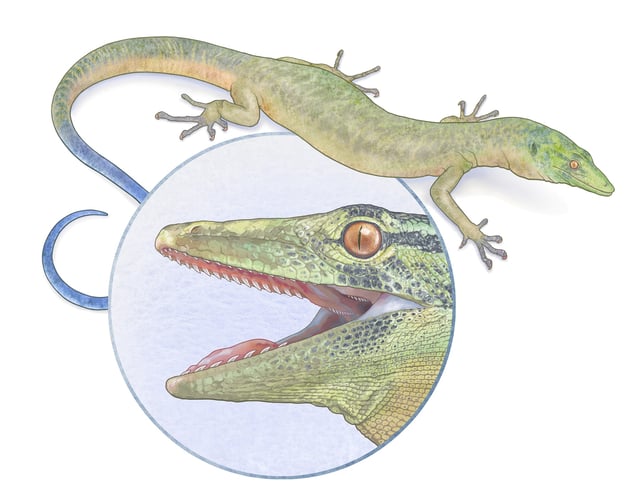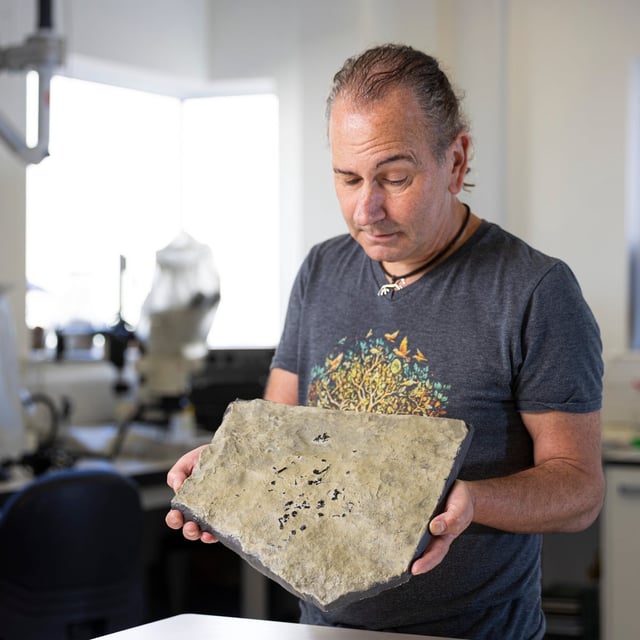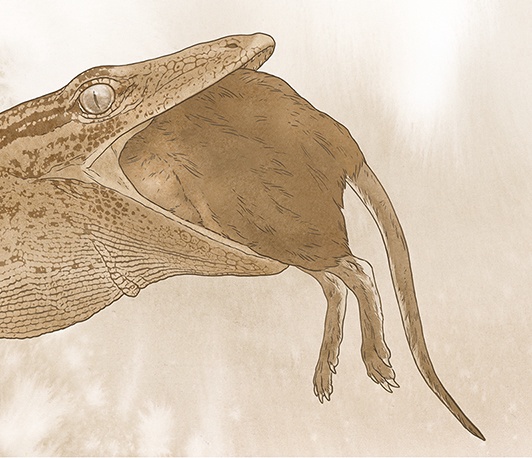Overview
- The peer-reviewed description appears October 1 in Nature after nearly a decade of CT scanning and comparative analysis by an international team.
- Discovered near Elgol on the Isle of Skye in 2016 by National Museums Scotland curator Stig Walsh, the fossil is now in the NMS national collection.
- The roughly 167-million-year-old skeleton preserves snake-like jaws and recurved, python-like teeth paired with a short, lizard-like body and limbs.
- Researchers assign the species to Parviraptoridae and say its mosaic features could reflect a stem-squamate lineage or convergent evolution of snake-like feeding.
- At about 16 inches long, the animal likely hunted small lizards and early mammals, with some reports suggesting very young dinosaurs as possible prey.



